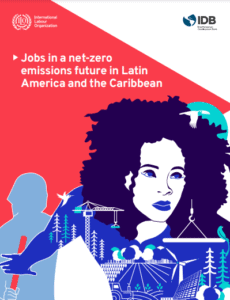Behavioural Change and Circular Economy in the region
As part of the UNEP project “Driving Sustainable Consumption in Latin America” financed by the European Union and as contribution to the Coalition, UNEP is conducting a regional study on…
As part of the UNEP project “Driving Sustainable Consumption in Latin America” financed by the European Union and as contribution to the Coalition, UNEP is conducting a regional study on…
On Friday 18th of June we invite you to participate in this event organised by the Ministry of Environment and the Ministry of Agriarian Development and Irrigation of Peru.
The second Multi-stakeholder Roundtable for the construction of a Regional Circular Economy Vision took place on 8 June. Members of the Circular Economy Coalition have been working towards the construction…
Capital equipment is the buildings, machines, and infrastructure we use to keep our societies running. It includes everything from computer servers to medical scanners, power plants to cars, trains, and…

The Ellen MacArthur Foundation has set out five universal circular economy policy goals that provide a framework for national governments, cities and businesses to create a transition that fosters innovation and decouples growth from finite resource consumption and environmental degradation.
As governments and industries around the globe move towards a circular economy, it’s key to align ambitions and create a common direction of travel.
The five goals provide a blueprint for co-operation – we need to work together across the private and public sectors to make them effective.
The goals recognise that the relevant policies are interconnected – this will help avoid the creation of a patchwork of fragmented solutions. If we can align nationally and internationally, we can reduce friction across borders and lower costs. Close co-operation also minimises the risk of individual policy measures remaining isolated in a wider, unchanged economic system that’s based on a linear ‘take-make-waste’ approach.

The pandemic has cruelly exposed the vulnerability of our societies. The troubling levels of inequality have ensured the coronavirus has hit hard even the most prosperous countries in Latin America and the Caribbean. Informal workers, who represent 49 percent of employment, have been severely affected by lockdowns and social distancing measures, which have limited or temporarily halted their livelihoods. The region’s deficits in terms of decent jobs and social protection make it acutely vulnerable to this situation.
The report shares timely lessons to help guide a post-coronavirus recovery that prioritizes the creation of decent jobs and a more inclusive, sustainable, and resilient future. This can be a path to creating a better world for workers and enterprises while also tackling the climate crisis.
On December 14, 2020, the first meeting of the Steering Committee of the Circular Economy Coalition in Latin America and the Caribbean was held. Thanks to this first meeting, the…
Barbados, February 1, 2021.- A new initiative to support Latin America and the Caribbean in the transition to a circular economy as part of the COVID-19 recovery was launched today.…